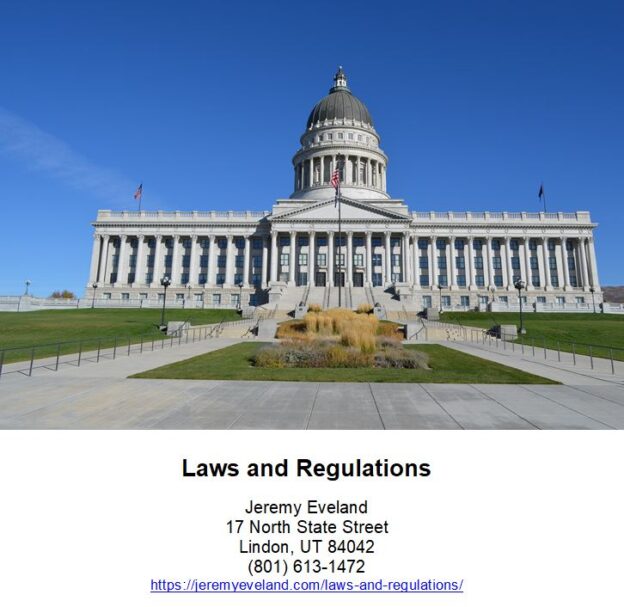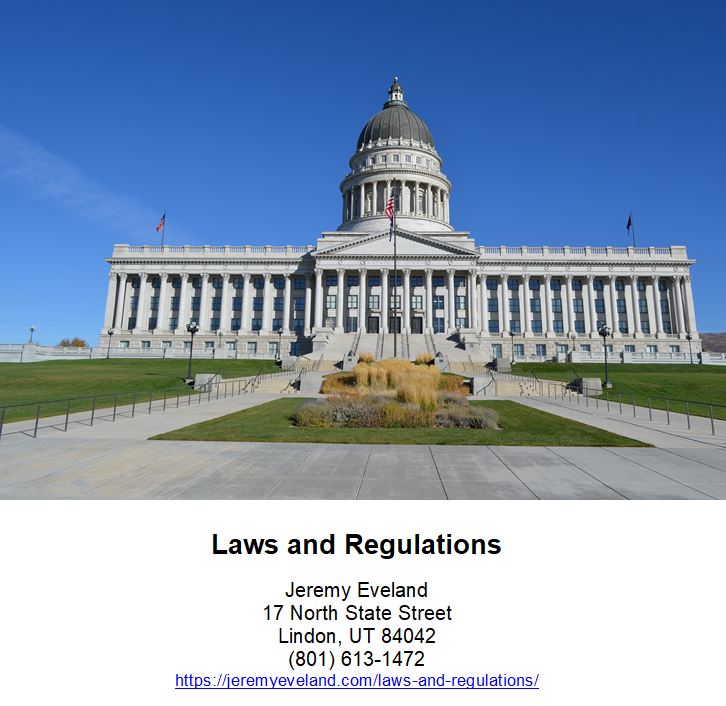-
Attorney at Law
- Introduction
- Exploring the Role of Administrative Law in the Regulatory Process
- Analyzing the Impact of Administrative Law on Businesses
- Examining the Constitutional Implications of Administrative Law
- Investigating the Relationship Between Administrative Law and Civil Rights
- Understanding the Interplay Between Administrative Law and Environmental Protection
- Q&A
“Navigating the Complexities of Administrative Law – Your Guide to Compliance and Success”
Introduction
Administrative law is a branch of public law that governs the activities of administrative agencies of government. It is the body of law that regulates the organization, procedures, powers, and duties of government agencies. Administrative law is a complex and ever-evolving field that touches on a wide range of topics, including the regulation of public and private sector activities, the protection of individual rights, and the enforcement of laws and regulations. Administrative law is an important part of the legal system, as it provides a framework for the government to carry out its duties and responsibilities. It also serves as a check on the power of government agencies, ensuring that they act within the bounds of the law.
Exploring the Role of Administrative Law in the Regulatory Process
Administrative law plays a critical role in the regulatory process. It is the body of law that governs the activities of administrative agencies of government. It is the legal framework within which public administration is carried out. It is the legal basis for the exercise of executive, legislative, and judicial authority by government agencies.
Administrative law is the foundation of the regulatory process. It provides the legal framework for the creation, implementation, and enforcement of regulations. It sets out the procedures for the adoption of regulations, the scope of their application, and the remedies available for their violation. It also establishes the standards for the exercise of discretion by administrative agencies.
Administrative law is essential for the effective functioning of the regulatory process. It provides the legal basis for the adoption of regulations and the enforcement of those regulations. It also provides the legal framework for the review of regulations by the courts.
Administrative law is also important for the protection of the public interest. It ensures that regulations are adopted in accordance with the law and that they are applied fairly and consistently. It also provides a mechanism for the public to challenge regulations that are not in the public interest.
Administrative law is an essential part of the regulatory process. It provides the legal framework for the adoption and enforcement of regulations and for the review of those regulations by the courts. It also provides a mechanism for the protection of the public interest. Without administrative law, the regulatory process would be ineffective and the public would be left unprotected.
Analyzing the Impact of Administrative Law on Businesses
Administrative law is a body of law that governs the activities of administrative agencies of government. It is a branch of public law that is concerned with the organization, procedures, and powers of administrative agencies. Administrative law has a significant impact on businesses, as it affects the way in which businesses interact with government agencies.
Administrative law affects businesses in a variety of ways. It sets out the rules and regulations that businesses must follow when dealing with government agencies. This includes the procedures for filing applications, submitting documents, and responding to requests for information. Administrative law also sets out the rights and obligations of businesses when dealing with government agencies. This includes the right to appeal decisions made by government agencies, as well as the right to challenge the legality of certain regulations.
Administrative law also affects businesses by providing a framework for the enforcement of regulations. This includes the ability of government agencies to impose fines and other penalties on businesses that fail to comply with regulations. Additionally, administrative law provides a mechanism for businesses to challenge the legality of certain regulations. This can be done through the filing of a petition for review or an appeal to a higher court.
Finally, administrative law affects businesses by providing a means of resolving disputes between businesses and government agencies. This includes the ability to file a complaint with an administrative tribunal or to seek a judicial review of a decision made by a government agency.
In summary, administrative law has a significant impact on businesses. It sets out the rules and regulations that businesses must follow when dealing with government agencies, provides a framework for the enforcement of regulations, and provides a means of resolving disputes between businesses and government agencies. As such, businesses should be aware of the impact of administrative law on their operations.
Examining the Constitutional Implications of Administrative Law
Administrative law is a branch of public law that governs the activities of administrative agencies of government. It is a complex and ever-evolving field of law that has significant implications for the constitutional rights of citizens. This article will examine the constitutional implications of administrative law and how it affects the rights of citizens.
The first constitutional implication of administrative law is the delegation of power from the legislative branch to the executive branch. The U.S. Constitution grants Congress the power to make laws, but it also allows Congress to delegate some of its authority to the executive branch. This delegation of power is known as the “nondelegation doctrine.” Under this doctrine, Congress can delegate its authority to the executive branch, but it must provide clear guidance on how the executive branch should exercise its authority.
The second constitutional implication of administrative law is the separation of powers between the three branches of government. The U.S. Constitution establishes a system of checks and balances between the three branches of government. This system ensures that no one branch of government has too much power. Administrative law is an important part of this system because it allows the executive branch to exercise its authority without infringing on the powers of the legislative and judicial branches.
The third constitutional implication of administrative law is the protection of citizens’ rights. Administrative agencies are responsible for enforcing laws and regulations, and they must do so in a way that is consistent with the Constitution. This means that administrative agencies must respect the rights of citizens, including their right to due process and equal protection under the law.
Finally, administrative law has implications for the federalism system. The U.S. Constitution establishes a system of federalism, which divides power between the federal government and the states. Administrative law is an important part of this system because it allows the federal government to regulate activities that affect multiple states. This helps to ensure that the states are not infringing on each other’s rights and that the federal government is able to protect the rights of citizens.
In conclusion, administrative law has significant implications for the constitutional rights of citizens. It allows the executive branch to exercise its authority without infringing on the powers of the legislative and judicial branches. It also protects citizens’ rights and helps to ensure that the federal government is able to protect the rights of citizens. Finally, it is an important part of the federalism system, which divides power between the federal government and the states.
Investigating the Relationship Between Administrative Law and Civil Rights
Administrative law and civil rights are two distinct areas of law that are closely related. Administrative law is the body of law that governs the activities of administrative agencies of government. It is the body of law that establishes the rules and procedures that agencies must follow in exercising their powers. Civil rights, on the other hand, are the rights of individuals to be free from discrimination and to be treated equally under the law.
The relationship between administrative law and civil rights is complex and multifaceted. On the one hand, administrative law provides the framework for the enforcement of civil rights. Administrative agencies are responsible for enforcing civil rights laws, such as those prohibiting discrimination in employment, housing, and education. Administrative agencies also have the power to issue regulations that further define and clarify civil rights protections.
On the other hand, civil rights laws also provide the basis for the creation of administrative agencies. For example, the Civil Rights Act of 1964 established the Equal Employment Opportunity Commission (EEOC) to enforce laws prohibiting discrimination in employment. Similarly, the Fair Housing Act of 1968 established the Department of Housing and Urban Development (HUD) to enforce laws prohibiting discrimination in housing.
The relationship between administrative law and civil rights is further complicated by the fact that administrative agencies often have the power to interpret and enforce civil rights laws. This means that administrative agencies can issue regulations that further define and clarify civil rights protections. For example, the EEOC has issued regulations that further define the scope of protections provided by the Civil Rights Act of 1964.
In summary, administrative law and civil rights are closely related. Administrative law provides the framework for the enforcement of civil rights, while civil rights laws provide the basis for the creation of administrative agencies. Additionally, administrative agencies often have the power to interpret and enforce civil rights laws, which can further define and clarify civil rights protections.
Understanding the Interplay Between Administrative Law and Environmental Protection
Administrative law and environmental protection are two distinct yet interrelated areas of law. Administrative law is the body of law that governs the activities of administrative agencies of government. It is the legal framework within which public administration is carried out. Environmental protection, on the other hand, is the practice of protecting the natural environment from pollution, destruction, and degradation.
The interplay between administrative law and environmental protection is complex and multifaceted. Administrative law provides the legal framework for the implementation of environmental protection policies and regulations. It sets out the procedures and standards for the enforcement of environmental laws and regulations. It also provides the legal basis for the creation of administrative agencies responsible for the enforcement of environmental laws and regulations.
Administrative law also plays an important role in the development of environmental protection policies. It provides the legal framework for the formulation of environmental protection policies and regulations. It also provides the legal basis for the implementation of such policies and regulations.
The interplay between administrative law and environmental protection is further complicated by the fact that environmental protection policies and regulations are often subject to judicial review. This means that the courts can review the legality of environmental protection policies and regulations. This review process ensures that environmental protection policies and regulations are consistent with the principles of administrative law.
Finally, administrative law also plays an important role in the enforcement of environmental protection policies and regulations. Administrative agencies are responsible for the enforcement of environmental laws and regulations. Administrative law provides the legal framework for the enforcement of environmental laws and regulations. It also provides the legal basis for the imposition of penalties for violations of environmental laws and regulations.
In conclusion, administrative law and environmental protection are two distinct yet interrelated areas of law. Administrative law provides the legal framework for the implementation of environmental protection policies and regulations. It also provides the legal basis for the enforcement of environmental laws and regulations. Finally, it provides the legal basis for the review of environmental protection policies and regulations by the courts.
Q&A
1. What is Administrative Law?
Administrative law is the body of law that governs the activities of administrative agencies of government. It is the legal framework within which public administration is carried out.
2. What are the main sources of Administrative Law?
The main sources of administrative law are statutes, regulations, executive orders, and judicial decisions.
3. What is the purpose of Administrative Law?
The purpose of administrative law is to ensure that government agencies act within the scope of their authority and in accordance with the law. It also provides a mechanism for citizens to challenge the decisions of government agencies.
4. What are the main principles of Administrative Law?
The main principles of administrative law are fairness, transparency, accountability, and efficiency.
5. What is the difference between Administrative Law and Civil Law?
Administrative law is concerned with the activities of government agencies, while civil law is concerned with disputes between individuals or organizations. Civil law is based on common law, while administrative law is based on statutes and regulations.
Administrative Law Consultation
When you need help with Administrative Law call Jeremy D. Eveland, MBA, JD (801) 613-1472 for a consultation.
Jeremy Eveland
17 North State Street
Lindon UT 84042
(801) 613-1472
Related Posts
Business Succession Lawyer Bountiful Utah
Concrete Pumping Business Lawyer





